17 Cholesterol-Busting Foods You Need To Add To Your Diet, According To Studies
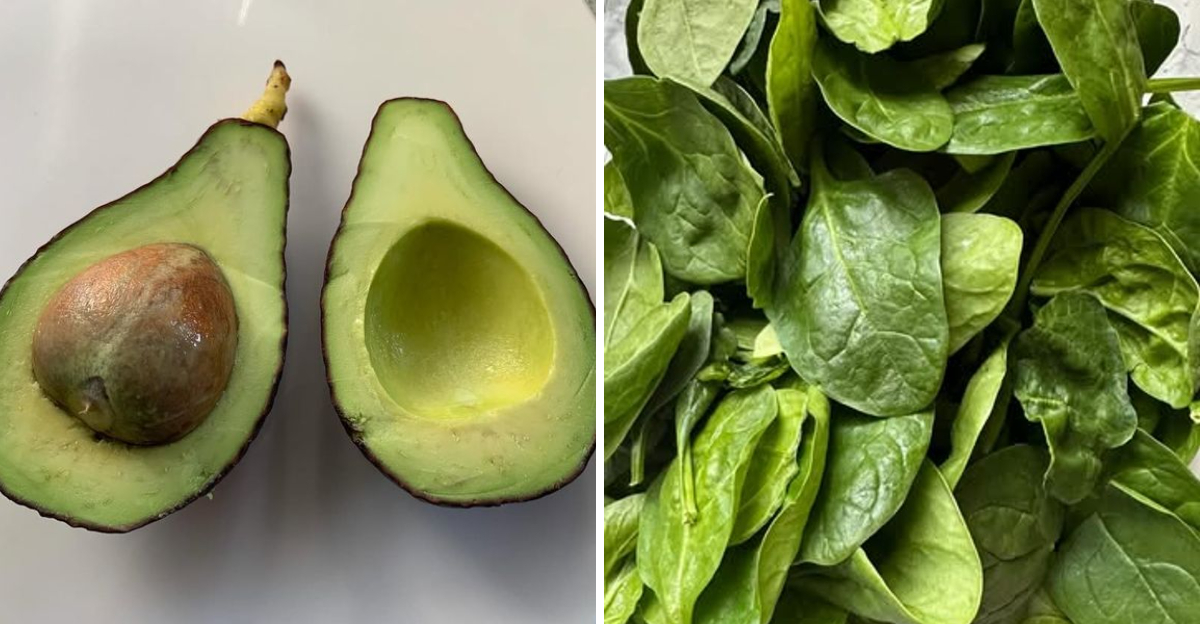
High cholesterol levels can lead to serious health issues, but the good news is that you can manage it through your diet. Studies have shown that certain foods can help lower cholesterol effectively. Here’s a list of 17 powerful foods that you should consider adding to your diet for better heart health.
1. Oats
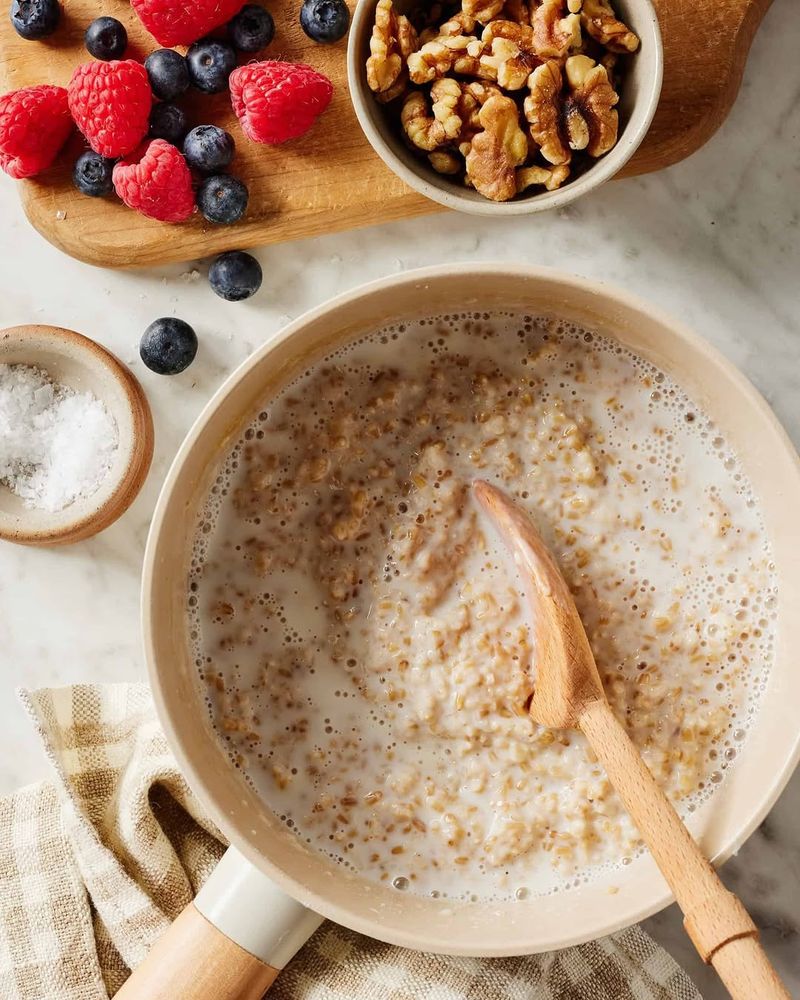
Oats are a fantastic choice for breakfast, offering a hearty start to your day. Containing beta-glucan, a soluble fiber, oats help reduce LDL cholesterol, commonly known as ‘bad’ cholesterol. This fiber forms a gel-like substance in the gut, binding cholesterol and removing it from the body. Enjoy oats with fresh fruits or nuts for added flavor and nutrition. Not only do they help lower cholesterol, but they’re also a satisfying way to keep hunger at bay. Oats are versatile and can be used in various recipes, including smoothies and baked goods.
2. Beans
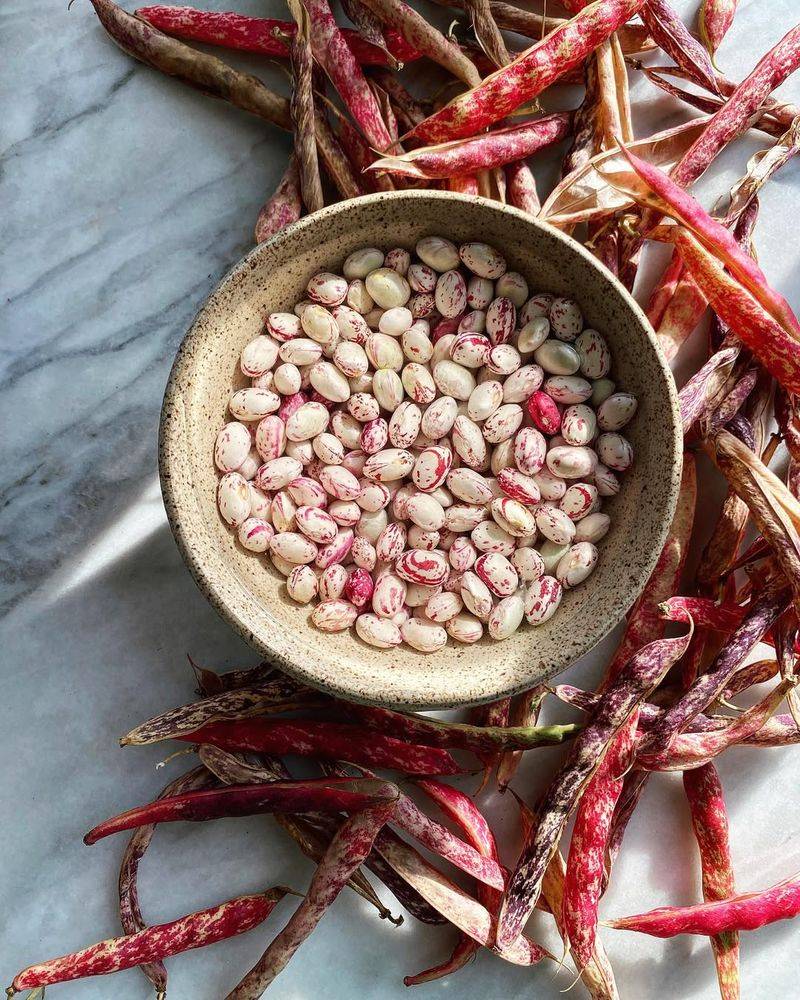
Beans are not just a comfort food; they’re packed with cholesterol-lowering nutrients. Rich in soluble fiber, beans help trap cholesterol in the digestive system. They require longer digestion, keeping you full and satisfied longer, which can prevent overeating. Beans come in many varieties, including black beans, chickpeas, and kidney beans, each offering unique flavors and nutrients. Incorporate beans into salads, stews, or as a side dish to enjoy their benefits. They’re also a great plant-based protein source, making them ideal for vegetarians looking to manage cholesterol levels.
3. Nuts
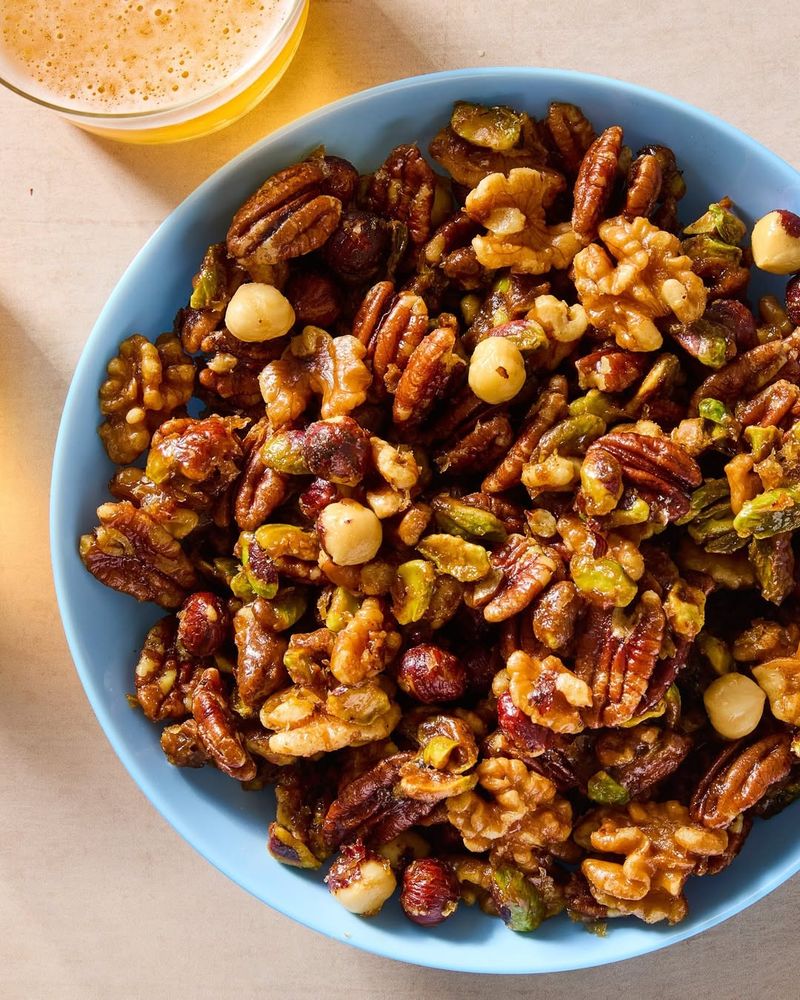
Nuts like almonds, walnuts, and pistachios are excellent snacks that can help lower cholesterol. They contain healthy fats, fiber, and plant sterols, which are known to reduce LDL cholesterol. A small handful of nuts a day can make a significant difference in your cholesterol levels. Include them in your diet by adding to salads, yogurt, or simply as a snack. Their crunch and flavor make them a delightful addition to meals. However, be mindful of portion sizes as they are calorie-dense. Consuming them in moderation ensures you reap their health benefits.
4. Salmon

Salmon is a rich source of omega-3 fatty acids, which are essential for heart health. These healthy fats help lower triglycerides and reduce inflammation, contributing to lower cholesterol levels. Include salmon in your diet at least twice a week for optimal benefits. Cooking methods like grilling or baking preserve its nutrients while adding flavor. Pair salmon with a side of vegetables or a salad for a balanced meal. Its tender texture and rich taste are enjoyed by many, making it a popular choice for those looking to maintain a healthy heart.
5. Avocados
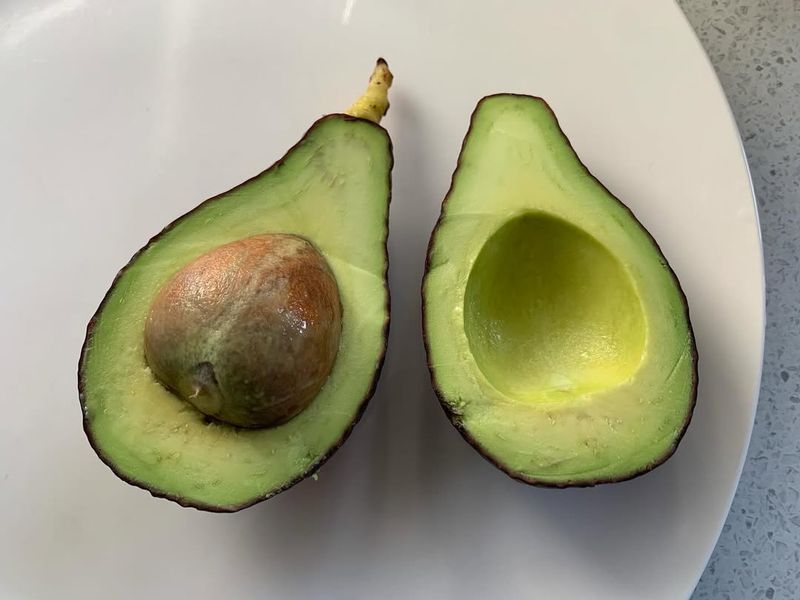
Avocados are a delicious way to add healthy fats to your diet. High in monounsaturated fats and fiber, avocados help lower LDL cholesterol while increasing HDL cholesterol, known as ‘good’ cholesterol. Enjoy avocados in salads, on toast, or as a creamy addition to smoothies. Their unique creamy texture and mild flavor make them versatile and easy to incorporate into meals. Avocados not only support heart health but also provide essential vitamins and minerals. Include them in your diet for a tasty and nutritious way to manage cholesterol levels.
6. Olive Oil

Olive oil is a staple in Mediterranean diets, known for its heart-healthy properties. Rich in monounsaturated fats, it helps lower LDL cholesterol while maintaining HDL cholesterol levels. Use olive oil as a base for salad dressings or for sautéing vegetables. Its subtle flavor enhances dishes without overpowering them. When choosing olive oil, opt for extra virgin varieties for maximum health benefits. Incorporating olive oil into cooking not only supports cholesterol reduction but also adds a delightful richness to meals. Its versatility makes it an essential ingredient in any heart-conscious diet.
7. Spinach
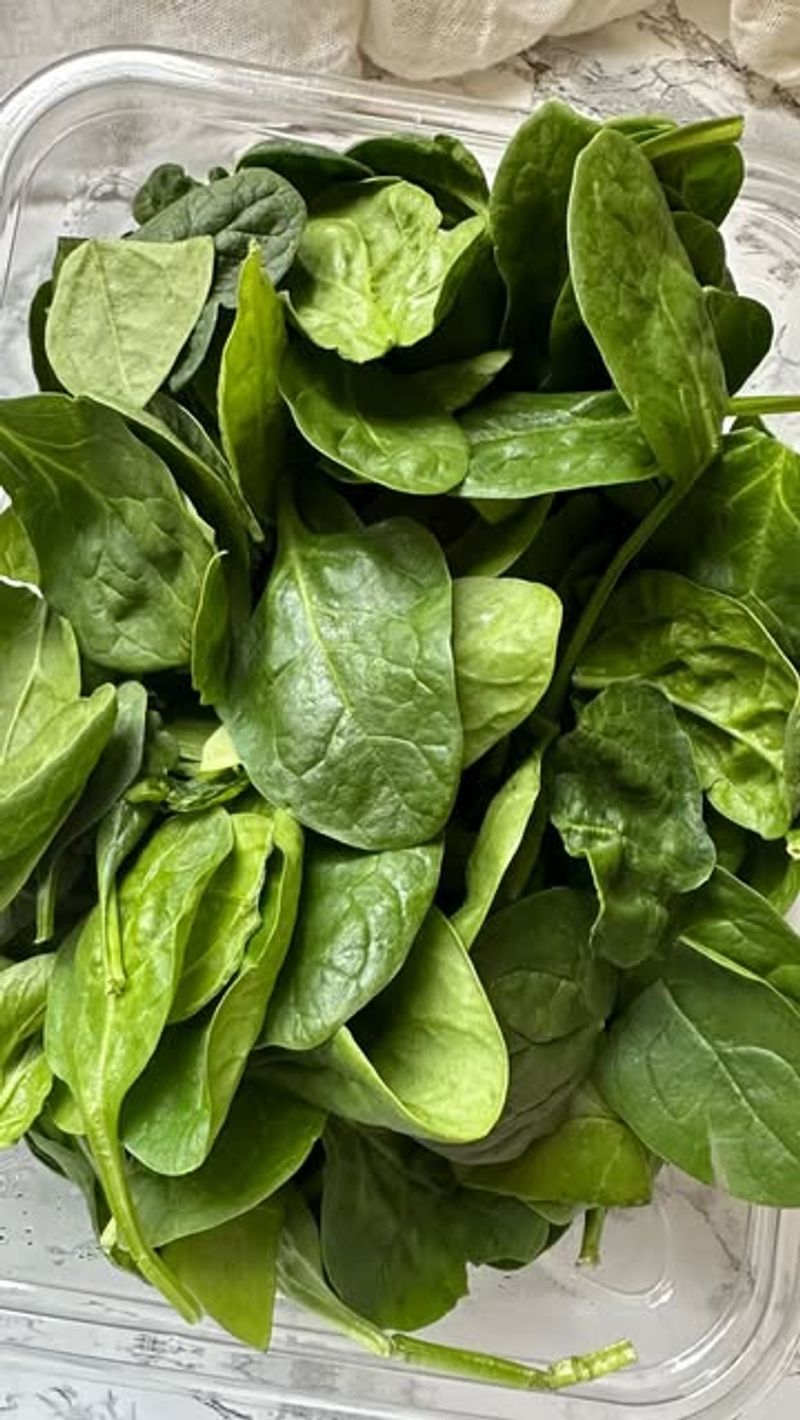
Spinach is more than just a leafy green; it’s a powerhouse of nutrients that support heart health. Rich in lutein, spinach can help reduce the risk of heart disease by preventing cholesterol from attaching to artery walls. Incorporate spinach into your diet by adding it to smoothies, salads, or sautéed as a side dish. Its mild taste blends well with various flavors, making it easy to include in meals. Spinach is not only beneficial for lowering cholesterol but also provides essential vitamins and minerals that support overall health.
8. Barley
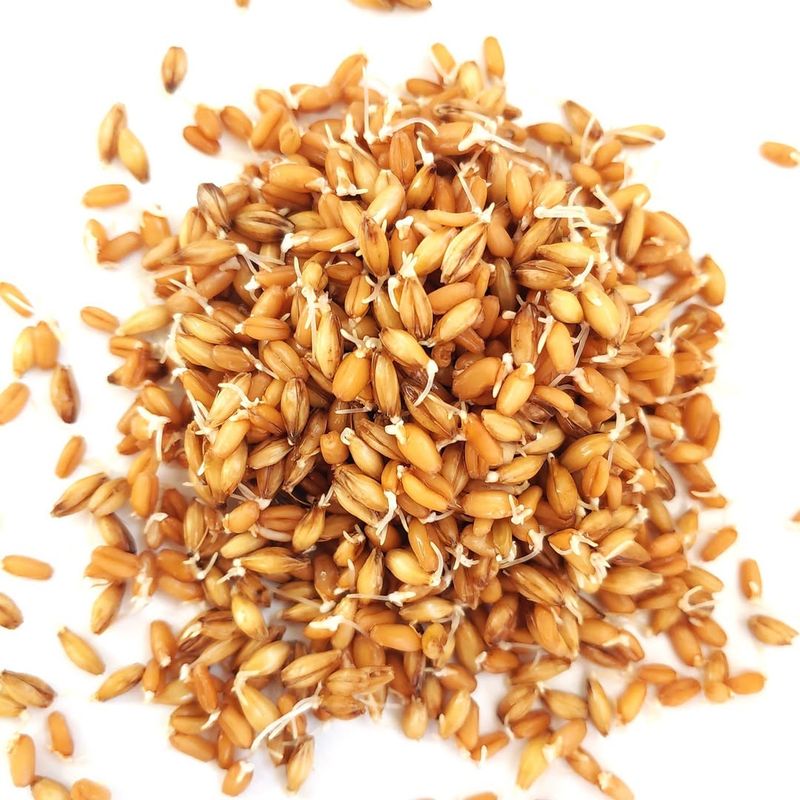
Barley is a whole grain that offers numerous health benefits, especially for heart health. Packed with beta-glucan, barley helps lower LDL cholesterol levels effectively. Its nutty flavor and chewy texture make it a versatile ingredient in soups, salads, and as a side dish. Incorporating barley into your diet can support cholesterol management while providing essential nutrients. It’s a great alternative to rice or pasta, adding variety to meals. Including barley in your diet not only aids in cholesterol reduction but also contributes to overall nutritional well-being.
9. Berries
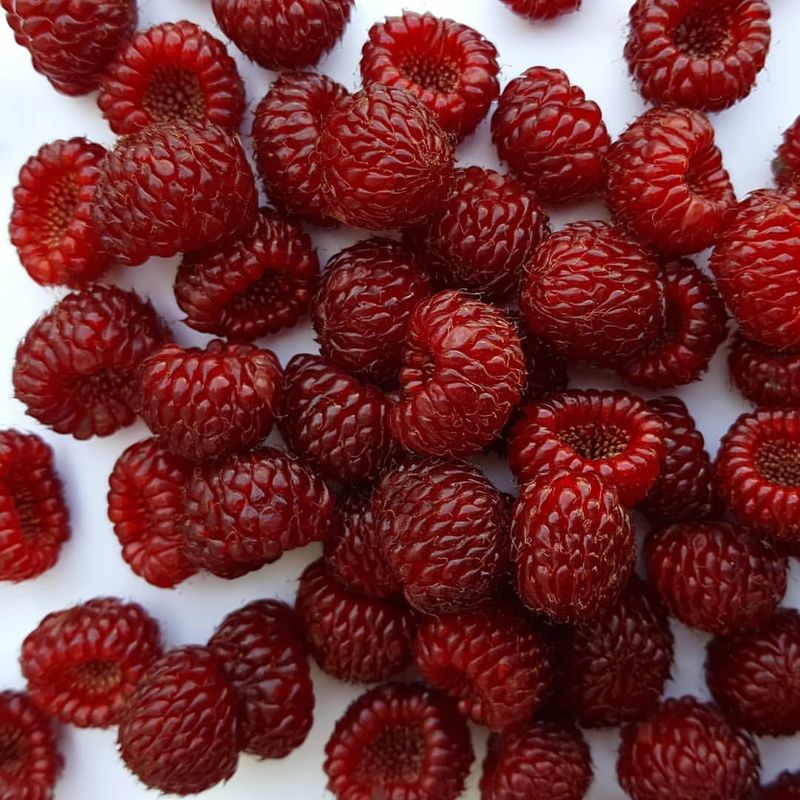
Berries are not only delicious but also packed with antioxidants and fiber that support heart health. Strawberries, blueberries, and raspberries are particularly effective in lowering cholesterol levels. Their vibrant colors signal a rich supply of nutrients and polyphenols that improve cholesterol profiles. Enjoy berries as a snack, in smoothies, or as a topping for yogurt and cereal. Their sweet and tangy taste makes them a popular choice for any meal. Including berries in your diet is an easy and enjoyable way to support heart health and manage cholesterol levels.
10. Garlic

Garlic has been used for centuries for its medicinal properties, particularly in heart health. It contains allicin, a compound known to reduce cholesterol levels and improve heart function. Adding garlic to your meals can enhance flavor while providing health benefits. Whether used in cooking or as a supplement, garlic can support cholesterol management. Its pungent taste adds depth to dishes, making it a favorite in many cuisines. Incorporating garlic into your diet is a flavorful way to promote heart health and enjoy the culinary richness it offers.
11. Dark Chocolate

Dark chocolate is a delightful treat that also offers heart health benefits. Rich in flavonoids, dark chocolate can help lower cholesterol levels and improve blood vessel function. Choose dark chocolate with at least 70% cocoa content for the best results. Enjoy it in moderation as part of a balanced diet, savoring its rich and intense flavor. Dark chocolate provides a guilt-free indulgence while supporting cholesterol management. Its complex taste and smooth texture make it a luxurious addition to your diet, offering both pleasure and health benefits.
12. Green Tea

Green tea is a soothing beverage known for its antioxidant properties. It contains catechins, which help lower LDL cholesterol and improve heart health. Enjoying a cup of green tea daily can support cholesterol management while offering a calming experience. Its light and earthy flavor is refreshing, making it a popular choice for tea lovers. Green tea can be enjoyed hot or iced, providing flexibility in how it’s consumed. Incorporating green tea into your routine is a simple yet effective way to promote heart health and enjoy its soothing qualities.
13. Lentils
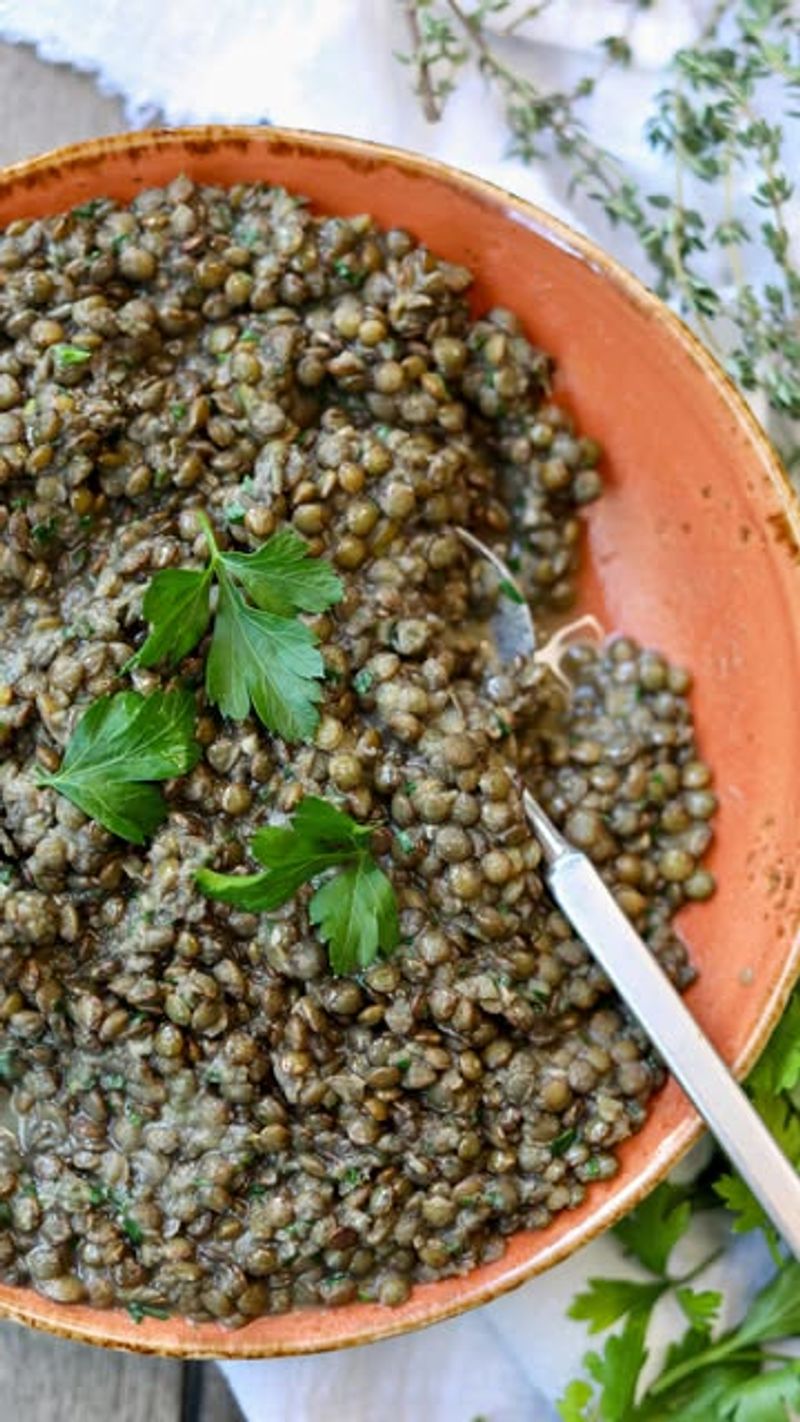
Lentils are a nutrient-dense legume that supports heart health by lowering cholesterol. Rich in soluble fiber and plant-based protein, lentils help reduce LDL cholesterol levels. They come in various colors, each offering unique flavors and textures. Incorporate lentils into soups, salads, or as a side dish to enjoy their health benefits. Their earthy taste and satisfying texture make them a versatile ingredient in many recipes. Lentils not only contribute to cholesterol management but also provide essential nutrients for overall well-being, making them a valuable addition to a heart-healthy diet.
14. Soy

Soy products are well-known for their cholesterol-lowering effects. Foods like tofu, soy milk, and edamame contain isoflavones and protein that help reduce LDL cholesterol. Incorporating soy into your diet is easy and offers a plant-based protein source. Enjoy soy milk in smoothies, tofu in stir-fries, or edamame as a snack. Their mild flavor and versatility make them suitable for various culinary uses. Including soy products in your meals can support heart health while providing essential nutrients. They’re a great option for those looking to maintain a balanced and cholesterol-conscious diet.
15. Eggplant
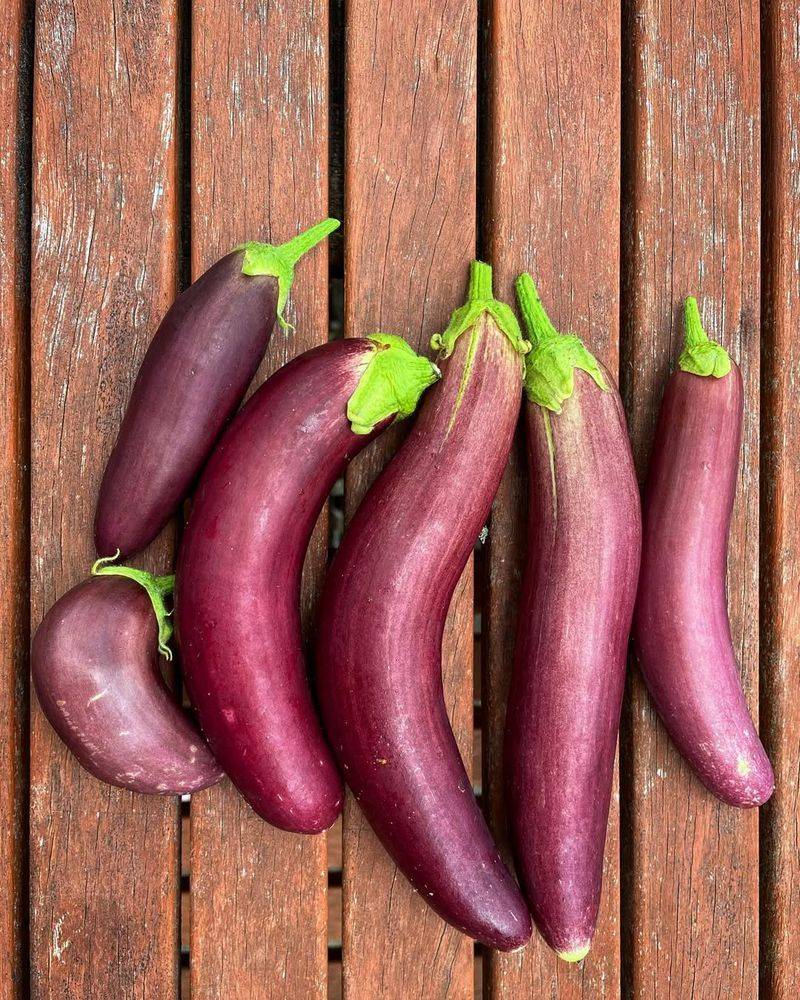
Eggplant is a versatile vegetable that supports heart health by lowering cholesterol. Rich in fiber and antioxidants, eggplant helps reduce LDL cholesterol levels. Its unique texture and mild flavor make it suitable for various dishes, from stir-fries to casseroles. Incorporate eggplant into your diet by grilling, roasting, or adding to stews. Its ability to absorb flavors makes it a favorite in many cuisines. Eggplant not only contributes to cholesterol management but also provides essential nutrients, making it a valuable addition to a heart-healthy diet.
16. Flaxseeds
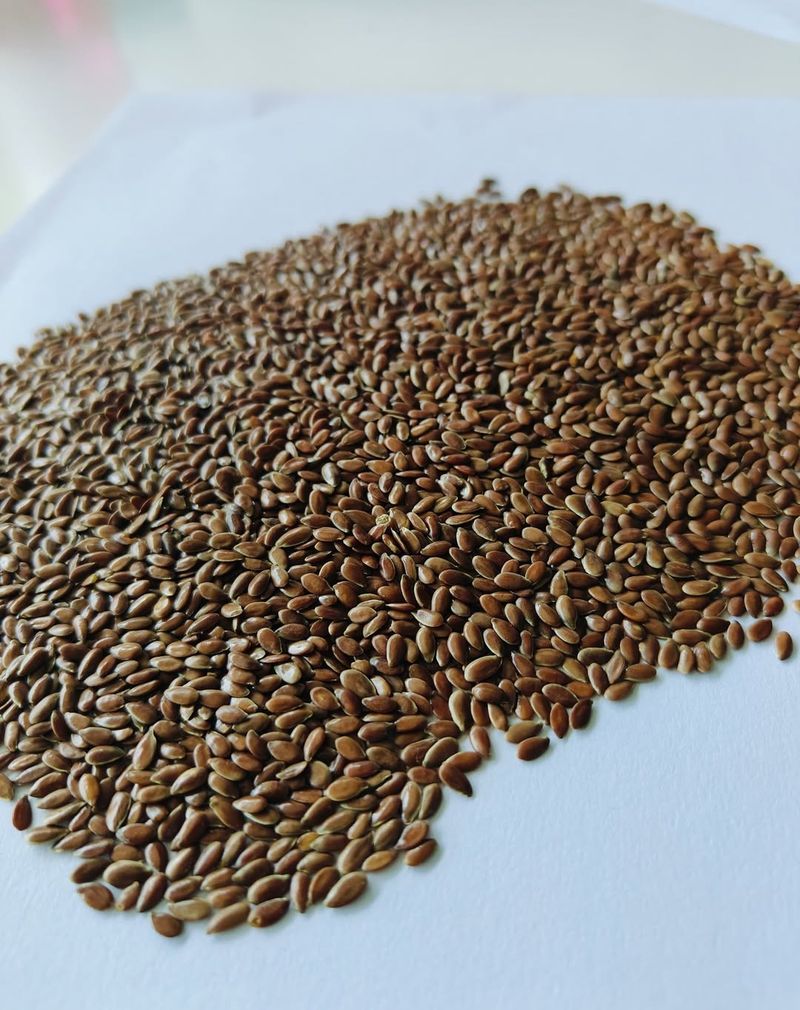
Flaxseeds are tiny seeds packed with heart-healthy benefits. Rich in omega-3 fatty acids and fiber, they help lower LDL cholesterol levels. Their nutty flavor and crunchy texture make them a versatile addition to meals. Add flaxseeds to smoothies, yogurt, or baked goods for an extra nutritional boost. Ground flaxseeds are easier to digest and release more nutrients. Incorporating flaxseeds into your diet is a simple way to support heart health and enjoy their unique flavor. They’re an excellent choice for those looking to manage cholesterol naturally.
17. Broccoli
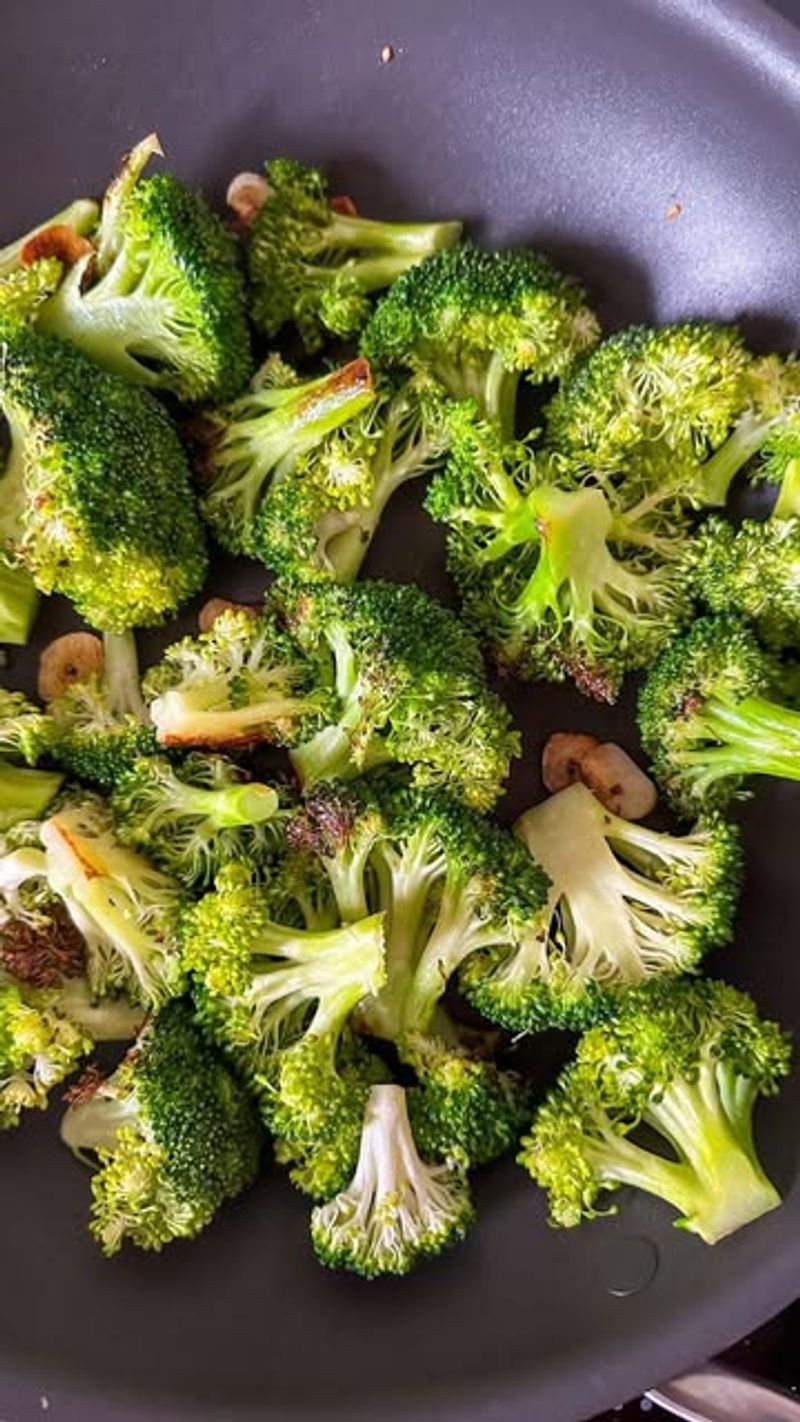
Broccoli is a cruciferous vegetable that offers numerous health benefits, including cholesterol reduction. Rich in fiber and antioxidants, broccoli helps lower LDL cholesterol levels. Its crisp texture and mild taste make it a versatile ingredient in many dishes. Incorporate broccoli into your diet by steaming, roasting, or adding to salads. Its ability to pair well with various flavors makes it a favorite among health-conscious eaters. Broccoli not only supports heart health but also provides essential vitamins and minerals, making it a valuable addition to a balanced diet.
